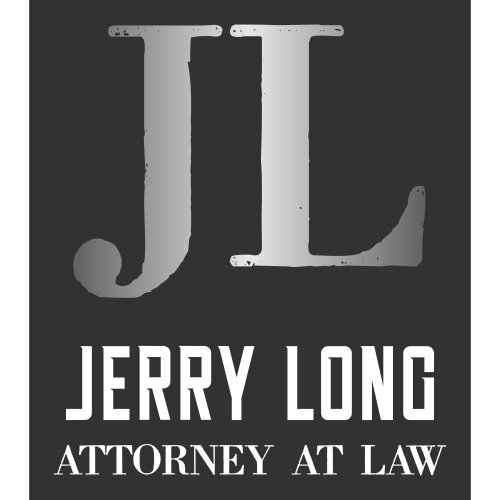Best Nonprofit & Charitable Organizations Lawyers in Knoxville
Share your needs with us, get contacted by law firms.
Free. Takes 2 min.
List of the best lawyers in Knoxville, United States
About Nonprofit & Charitable Organizations Law in Knoxville, United States
Nonprofit and charitable organizations play a vital role in the community of Knoxville by addressing a wide range of social, educational, and cultural issues. These organizations operate by reinvesting their income into achieving their missions rather than distributing profits to owners or shareholders. Nonprofit law governs the formation, operation, and accountability of these entities. In Knoxville, the legal landscape for nonprofits includes registration, compliance with both federal and state regulations, and ensuring transparency and accountability in their operations.
Why You May Need a Lawyer
There are several scenarios in which individuals or organizations may require legal assistance in the nonprofit sector. Establishing a nonprofit requires navigating complex legal procedures, such as incorporating, drafting bylaws, and applying for tax-exempt status with the IRS. Ongoing compliance with federal and state regulations is crucial, and an attorney can help ensure that your nonprofit adheres to the law, thus avoiding penalties. Additionally, legal issues related to fundraising, employment, intellectual property, and board governance may arise, necessitating expert legal guidance.
Local Laws Overview
In Knoxville, nonprofits must comply with both Tennessee state laws and federal guidelines. Key local legal considerations include the Tennessee Charitable Solicitations Act, which governs fundraising activities, and the requirement for certain nonprofits to declare sales tax exemptions. Knoxville-based nonprofits must be incorporated under Tennessee law and maintain good standing by filing regular reports with the Tennessee Secretary of State. Familiarity with these laws ensures that nonprofits can operate smoothly and effectively within the region.
Frequently Asked Questions
What are the initial steps to forming a nonprofit in Knoxville?
Begin by defining your mission, drafting articles of incorporation, and filing them with the Tennessee Secretary of State. You’ll also need to adopt bylaws, obtain an Employer Identification Number (EIN), and apply for tax-exempt status under Section 501(c)(3) with the IRS.
How do I apply for tax-exempt status?
To obtain tax-exempt status, file Form 1023 or Form 1023-EZ with the IRS. This will involve detailing your organization’s structure, financial information, and proposed charitable activities.
Are there annual reporting requirements for nonprofits in Knoxville?
Yes, most nonprofits in Knoxville are required to file annual reports with the Tennessee Secretary of State and an annual return with the IRS, typically Form 990, 990-EZ, or 990-N.
What is the process for fundraising legally?
Nonprofits must comply with the Tennessee Charitable Solicitations Act, which may require registration before soliciting donations. It’s also critical to adhere to regulations concerning transparency and donor privacy.
Can a nonprofit generate income from unrelated business activities?
Yes, however, income from unrelated business activities may be subject to Unrelated Business Income Tax (UBIT), and it must not constitute a substantial portion of the organization’s total activities.
What should be included in nonprofit bylaws?
Bylaws should include provisions for governance structure, board member responsibilities, meeting procedures, amendments, and dissolution processes.
How are conflicts of interest managed in a nonprofit setting?
Nonprofits must have a conflict of interest policy that clearly outlines the process for disclosure and resolution to ensure organizational integrity and transparency.
What protections do board members have from liability?
While board members should act in good faith and within their governance responsibilities, liability insurance for directors and officers can provide additional protection.
How can a nonprofit lose its tax-exempt status?
Failure to comply with IRS reporting requirements, substantial unrelated business income, political campaign involvement, or lobbying can threaten tax-exempt status.
What role does a lawyer play during an audit of a nonprofit?
A lawyer can help prepare documents, communicate with auditors, address compliance issues, and advocate for the organization’s interests during the audit process.
Additional Resources
For assistance, the following resources can be beneficial:
- Tennessee Secretary of State - Charitable Organizations Division
- The Internal Revenue Service (IRS) - Tax Exempt Organizations
- The East Tennessee Foundation
- The Alliance for Better Nonprofits, which provides training and resources for nonprofit management
- Knoxville Bar Association - Resource Center for nonprofit legal matters
Next Steps
If you require legal assistance with your nonprofit organization, consider contacting a law firm specializing in nonprofit law in Knoxville. Schedule a consultation to discuss your specific needs, ensure legal compliance, and explore strategies for effective governance. You may also look into local bar associations or nonprofit support networks for recommendations on experienced attorneys in this field.
Lawzana helps you find the best lawyers and law firms in Knoxville through a curated and pre-screened list of qualified legal professionals. Our platform offers rankings and detailed profiles of attorneys and law firms, allowing you to compare based on practice areas, including Nonprofit & Charitable Organizations, experience, and client feedback.
Each profile includes a description of the firm's areas of practice, client reviews, team members and partners, year of establishment, spoken languages, office locations, contact information, social media presence, and any published articles or resources. Most firms on our platform speak English and are experienced in both local and international legal matters.
Get a quote from top-rated law firms in Knoxville, United States — quickly, securely, and without unnecessary hassle.
Disclaimer:
The information provided on this page is for general informational purposes only and does not constitute legal advice. While we strive to ensure the accuracy and relevance of the content, legal information may change over time, and interpretations of the law can vary. You should always consult with a qualified legal professional for advice specific to your situation.
We disclaim all liability for actions taken or not taken based on the content of this page. If you believe any information is incorrect or outdated, please contact us, and we will review and update it where appropriate.









